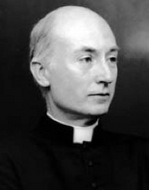It is a dramatic slap-down of liberal Anglicanism and a total repudiation of the ordination of women, homosexual marriage and the general neglect of doctrine in Anglicanism. Indeed, it is a final rejection of Anglicanism. It basically interprets Anglicanism as a spiritual patrimony based on ethnic tradition rather than substantial doctrine and makes clear that it is not a historic "church" but rather an "ecclesial community" that strayed and now is invited to return to communion with the Pope as Successor of Peter.
The Vatican was careful to schedule simultaneously with the Vatican announcement, a press conference of the Catholic Archbishop of Westminster and the deeply humiliated Anglican Archbishop of Canterbury to enable the Anglicans to save some face by saying that this recognizes the spiritual patrimony of Anglicanism and that ecumenical dialogue goes ahead. That is like George Washington at Yorktown saying that he recognizes the cultural contributions of Britain and hopes diplomatic relations flourish. The Apostolic Constitution is not a retraction of ecumenical desires, but rather is the fulfillment of ecumenical aspirations, albeit not the way most Anglican leaders had envisioned it.
The press, uninformed and always tabloid in matters of religion, will zoom in on the permission for married priests. They will miss the most important point: that this reiterates the Catholic Church's insistence that Anglican Holy Orders are invalid, and perforce so is their Eucharist. These married Anglican priests have to be fully and validly ordained by a Catholic bishop. Following Orthodox custom, they are allowed to marry only before ordination and not after. And no married man may become a bishop. (Thus, any Anglican bishop joining one of these "ordinariates" would no longer be recognized as a bishop. Under special provision, Anglican bishops would have some right to pastoral authority, but would not be bishops.)
It remains to be seen how many Anglicans (Episcopalians in the USA) will be received into the Catholic Church under these provisions, but it is a final nail in the coffin of the rapidly disintegrating Anglicanism at least in the West and will radically challenge Anglicans in other parts of the world. Perhaps most importantly, it sets a precedent for reunion with Orthodox churches whose Holy Orders the Catholic Church already recognizes as valid. I should not be surprised if the Anglican Archbishop of Canterbury eventually is received into the Catholic Church, at least when he retires and gets a patent of nobility and a pension.

Fr. George
Rutler is pastor of The Church of Our Saviour in New York City and is a convert
to Catholicism from the Anglican Communion.


Time will tell how this will or will not encourage disaffected Anglicans to enter into Communion with Rome. I don't expect very dramatic results, at least in North America, given that it appears that the say on whether or not to approve the ordinariates lies with the national conferences of Catholic Bishops, and at least here in Canada, I am told that they have tended to be hostile to any such accommodations (even the earlier, more individualized Anglican Use provisions). From the Anglican side, it will require a major leap for any sizable "group" of clergy to be willing to disavow their orders (either formally or informally), be confirmed, and then ordained. From my own experience when I become Orthodox, I know the agony of that decision for individuals, let alone getting a whole "jurisdiction" as it were to do it together.
In the reports that I have seen, it seems to be indicated that already married, "former" Anglican clergy can be ordained (as with the earlier provisions) but there does not seem to be any indication that anyone preparing for ordination to serve within the ordinariates in the future will be able to marry then be ordained. I am curious if that is actually the case. If so, it indicates an inevitable phasing out of married clergy.